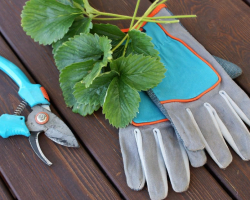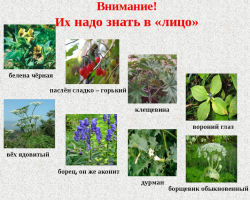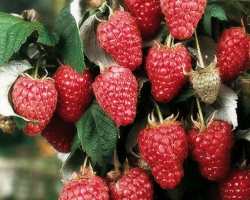From this article you will learn how to grow a wild lemon in the territory of Russia where a cultural lemon will not survive.
Content
- Brief acquaintance with a wild lemon poncirus
- Beneficial properties of a wild poncirus lemon
- What diseases does the poncirus be treated to treat?
- Contraindications to the use of a wild poncirus lemon
- Where can the poncirus boil lemon grow?
- How can you plant a wild poncirus lemon?
- How to plant a poncirus from seeds?
- What diseases can a wild lemon poncirus get sick?
- How is the poncirus wild lemon in the household, traditional medicine used?
- What to cook with a wild lemon poncirus?
- Lemon roll with wild lemon poncirus: recipe
- Marinade to barbecue with the addition of a wild poncirus lemon: recipe
- Wild lemons of ponciruses: recipe
- Homemade lemonchell from wild ponciruses: recipe
- Video: Wild lemons Ponciruses in Gelendzhik
Lemons that we are used to buying in stores grow in a subtropical climate. In the moderate climate zone, lemon can be grown only in a pot, in an apartment or house. But there is one lemon that will grow and be fruitful, and in a temperate climate. This is a wild lemon, and it is also called Poncirus. We learn more about him.
Brief acquaintance with a wild lemon poncirus
Wild lemon or poncirus -This is a bush from the clan of citrus fruits, with light green, shiny leaves and the same pale green branches, up to 6 m high. There are also fruits on the tree, they are rounded, up to 4 cm in diameter, first grayish-green, and when they ripen , their peel becomes yellow. The peel of wild lemons is thicker and coarse than in cultural relatives.
Inside the poncirus fruit tasted, like an ordinary lemon, but more bitter, pulp is less than in a cultural lemon, and many seeds.
On the branches of a wild lemon, spikes grow along with leaves, so the bushes can be planted instead of hedges.
Wild lemon blooms in April-May with white flowers with a strong citrus aroma. The time of flowering lasts long, up to 2 months.
In the wild, the plant lives up to 100 years.


Beneficial properties of a wild poncirus lemon
Wild lemon is a very useful vitamin product. In addition to vitamins A, C, E, PP, ponzirus contains such vitamins of group B: B1, B2, B5, B6, B7. Wild lemon is also rich in:
- Potassium
- Gray
- Calcium
- Chlorine
- Phosphorus
- Magnesium
- Zinc
- Iron
- Fluorine
Rare trace elements:
- Molibden
- Boron
- Copper

What diseases does the poncirus be treated to treat?
What is treating wild lemon?
- Eating with fetal tea increases immunity
- The chewing of a wild lemon skins restores microflora in the mouth and pleasant breathing, whiten teeth
- Wild lemon juice removes age spots, acne and redness from the skin of the face
- Eating a sliced \u200b\u200bwild lemon eliminates heartburn
- The constant use of at least a small amount of poncirus increases hemoglobin, and cleanses the blood of toxins
- If you often eat wild lemon in food, there will be no constipation and diarrhea
- In the wild lemon there are B vitamins, on which a good full sleep depends
- Regular use of wild lemon in small quantities will establish your blood pressure
- Using a wild lemon in food, you remove unnecessary cholesterol from the body, accelerate the metabolism and youth
- Poncirus is rich in calcium, which is so useful for our bones and joints
Contraindications to the use of a wild poncirus lemon
Wild lemon has and contraindications for use:
- With a stomach ulcer, gastritis and colitis, the use of poncirus lemon even more provokes the disease
- For diseases of the liver
- With laryngitis, bronchitis, tonsillitis, tonsillitis and other diseases of the nasopharynx - the juice annoys the already sore throat and oral cavity
- Some people acutely react to the essential oils of citrus fruits and are prone to allergies
Where can the poncirus boil lemon grow?
Poncirus grows in South Asia by wild thickets, but it can also be planted in countries with a temperate climate, because it withstands the temperature of up to 20-25 degrees of frost in winter. If in your area the temperature rises higher in winter, the tree will have to be shelmed for the winter.
Wild lemon is unpretentious, grows on any soil, survives if the soil around it does not loosen, but sun -loving, and it needs to be planted on the sunny side. It is not necessary to water additionally, except rain, except when there was no rain for a month or more, then watered once a week.

How can you plant a wild poncirus lemon?
Wild lemon can be planted:
- Seeds
- Cherling
The germination of wild lemon from the seeds is low, because the seeds are poorly germinated if they were dried. Better the germination of Poncirus with cuttings.

How to plant a poncirus from seeds?
- We soak the poncirus seeds for 5-6 hours along with a growth stimulant (amber or boric acid, “heteroauxin”).
- Planted seeds in moist soil to a depth of 0.5-1 cm.
- We cover the pot with a film, and put it in a bright room with a temperature of 23-28 degrees of heat.
- After 7-10 days, check the shoots.
- It is possible to transplant an inferior plant into another pot or in open ground only after 3 months.
Wild lemon poncirus for the first 2-3 years after germination grows slowly, in the 4th year it begins to grow rapidly (up to 50 cm per year), fruit in 4-5 years.
What diseases can a wild lemon poncirus get sick?
Wild lemon poncirus is more resistant to diseases than cultural lemons, but still it is sick. What diseases are these?
- Viruses. Symptoms: damaged wood bark, yellowing of leaves, very thick shoots on a tree.
- Soil drying out leads to yellowing, twisting and falling of the leaves.
- Lack of fertilizers - Pale leaves.
- They can attack a tree in drought ticks and shields. Signs: brown plaques on the leaves appear, then these leaves dry out and fall. (The tree is treated with insecticidal preparations).
- Spider mite - The leaves are sluggish and covered with web. At first, if there are few ticks, spraying with soap solution helps, and if the onset of the disease is missed, you need to treat insecticides.
- Also, they can attack the plant powerfronts, whiteflies.
- Wild lemon, as well as cultural, although much less often, can get sick fungal diseases.
How is the poncirus wild lemon in the household, traditional medicine used?
In official medicine, there was no use of the fruits of a wild lemon poncirus, but traditional medicine uses the whole plant:
- Ripe fruits Used in cooking and perfumes.
- Stems, leaves, peel, seeds, and even roots In the east, where a wild lemon grows thickets, they go to the production of essential oil.
- And even immature fruits help:
With stomach disorders
Have diuretic properties
Improving young mothers lactation - Dried crusts Wild lemon, folded in a small linen bag, will fill a room or a cabinet with bedding with a pleasant aroma.
What to cook with a wild lemon poncirus?
Wild lemon poncirus is more fragrant than cultivated, but it is fresh unpleasant - it is bitter, and they cook from it:
- Different drinks
- Jam and marmalade
- Marinade for meat
- Add when preparing a home liquor, filing
Lemon roll with wild lemon poncirus: recipe
Let's take it to the roll:
- 3 tbsp. l. butter
- 150 ml of milk
- 3 eggs
- 150 g of sugar
- 2 cups of flour
- 1 tsp. store baking powder
- Clip of 1 wild lemon poncirus
To lubricate the cake:
- 0.5 cans of condensed milk
Cooking:
- Mix milk with butter and heat up until it dissolves, let it cool a little.
- Beat the eggs with sugar with a mixer until 3 times an increase.
- Pour the milk with butter to the eggs, mix, gradually pour the flour mixed with baking powder and lemon zest, and knead from the bottom up. We add so much flour to get a slightly liquid dough. It is possible that not all flour will go.
- We cover the rectangular shape with parchment paper, pour the dough, and bake in the oven heated to 200 degrees, about 20 minutes.
- We take out the baked hot cake along with the parchment, lubricate the condensed milk on top, and carefully separating the paper from the cake, twist it into the roll.

Marinade to barbecue with the addition of a wild poncirus lemon: recipe
This marinade is enough for 1 kg of meat.
Let's take it to the marinade:
- 30 ml of red dry wine
- 2-3 medium bulbs
- 5 garlic teeth
- Salt to taste
- A pinch of nutmeg
- Juice of 6 wild poncirus lemons
Cooking:
- Cut the onions with thick rings.
- Finely cut the garlic cloves.
- We add chopped garlic to the half rings of the bow, salt to taste, sprinkle with nutmeg, squeeze the juice from wild ponciruses.
- We lower the meat cut into barbells into the marinade, and pick up for about 2 hours, then string the meat on the skewer, interspersing it with onions.

Wild lemons of ponciruses: recipe
Let us take it to the tsukata:
- 1 kg of wild poncirus lemons
- 1.5 kg of sugar
- 800 ml of water
Cooking:
- We cut the washed lemons of ponciruses into thin circles, take out the seeds and throw it away, here they are not needed.
- We put the slices of lemons into a large thick -walled pan, pour sugar on them, and leave it for 20 minutes.
- Then we pour the slices with water, and put on the stove to cook over low heat, about 4 hours. Do not forget to stir.
- When lemon slices cooled in syrup, they can be pulled out of it, lay out one at a time, and dried.

Homemade lemonchell from wild ponciruses: recipe
Let us take in Limonchell:
- Zest of 0.5 kg of wild poncirus lemons
- 0.5 kg of sugar
- 1 liter of vodka
- 700 ml of water
Cooking:
- From washed in warm water and dried wild lemons, we remove the zest on a fine grater.
- Pour the zest into a jar, fill it with vodka, and place it in a cold place for 2 days.
- In hot water, dissolve sugar.
- We separate vodka from the zest: filter it through gauze.
- Pour the syrup into the vodka, pour the obtained Limonchell into the bottles, clog them, insist for 3 months, and you can try.

So, we learned a little more about a wild lemon.







